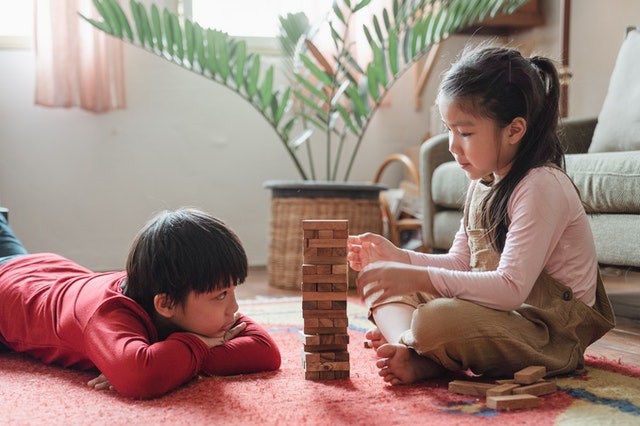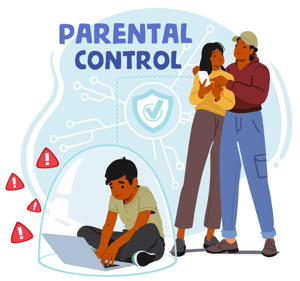Kids can be quite easily distracted.
We can’t really blame them now, can we? After all, there are still so many things they’ve yet to experience. And a good number of the stimuli they encounter are new to them. So regardless of whether they’re naturally excitable or not, it can be quite the feat to keep a child’s attention on one thing for a certain period of time.
Now, for very young children, this sort of flighty, easily-distracted characteristic isn’t anything to be concerned about. It’s normal and – in most cases – actually expected.
But once your kids have to go to school, that’s it. It’s a whole different ball game. They’re expected to sit down, be (relatively) quiet, and – most importantly – concentrate on the current lesson. (Easier said than done, we know.)
Some kids have more trouble focusing than others. But don’t forget; concentration is like a muscle. The more we use it – flex it, strengthen it, tone it – the stronger it becomes.
So if your kid finds it difficult to focus on certain subjects or school-related projects, don’t worry; there are plenty of ways you can help them exercise their focus.
Recommended Reading:
Table of Contents
Set a Working Schedule

Sometimes, the best way to get a child to focus is by managing their time. Kids don’t usually pay attention to the clock when they’re caught up in something they enjoy.
On the other hand, they’re also capable of relentlessly counting down the minutes when they’re stuck doing something they’d rather not be doing.
Children 4 to 5 years of age can usually concentrate on a single task for anywhere between five to twenty minutes. The actual number depends on different factors, such as the environment they’re in and the actual activity they’re doing.
The point is, kids – especially very young children – don’t have an excellent grasp of time yet. It would be unfair to expect them to manage their own schedules.
Related Reading:
To help keep your child focused on their schoolwork, take hold of their schedule. Discourage multitasking by giving them a set amount of time to do one task, and one task only.
For instance; they can only do math worksheets for fifteen minutes. After that, they may spend time on their tablet – watching videos, playing games, etc. – for another ten or fifteen minutes. After that short break, they have twenty minutes to spend on their math worksheets again.
If they finish early, they should use the remaining time to review their work or get started on advanced reading.
As they get older, they’ll have a better idea of how schedules work and thus won’t need as much monitoring. But while they’re still young and impressionable, taking charge of their time can help keep them focused on school-related tasks.

Teach Them How to Break Big Tasks Down
One reason kids can’t focus on a particular task is because they might feel intimidated or overwhelmed by it. In the case of schoolwork, they may feel unmotivated if it’s related to their least favorite subject (or the subject they find most difficult).
This fear and/or lack of motivation can result in a general disinterest towards similar activities, further affecting their ability to focus on the related subject matter in the future.
To avoid this mental block, teach kids how to break big, intimidating tasks down into smaller, more manageable activities.
For instance, a one-page essay can be broken down into several smaller, easier projects: research, an outline, actual writing, and then a quick review. Combine this with a working schedule for better results.
Instead of forcing your kid to sit at a desk for two hours straight to finish a one-page essay, try this instead:
- Have them spend ten to fifteen minutes researching or reviewing their notes for what they want to include in the paper.
- Then let them take a ten-minute break.
- Afterward, they have another fifteen minutes to spend outlining the first draft. Aside from the beginning, middle, and end, what other sections should they include? What are the important points they must hit? How do they want to wrap the piece up?
- After the outline, they can have another break before they actually go in and write the essay. They may find it much easier to do so now that they’ve got a rough draft to go off of.
Ergo, it’s no longer as intimidating as it was when it was just one big task.

Let Them Try Coding
Coding and concentration practically go hand-in-hand.
Designing, writing, and cleaning up computer programs activates a lot of learning centers in our brain – including the area that we call upon for sustained attention and concentration.
As a complex and multifaceted activity, it’s pretty much understood that coding can develop a multitude of different skills. Critical thinking, logical reasoning, working memory, and cognitive skills are just a few examples.
And, yes; the focus is a part of that list.
Related Reading:
It is near-impossible to even attempt to multitask while coding because the act of coding itself utilizes multiple activities. While you’re writing out the code, you need to be mindful of the syntax (in the case of text-based programming languages, anyway).
You also need to be aware of sequencing and cause-and-effect when determining the order of your lines in the code.
Before you even begin programming, you need to understand the situation presented and fully comprehend what is being asked of you (i.e., what do you need to solve?) in order to write the proper solution. And when you’re done writing, reviewing, debugging, and correcting needs to happen ASAP.
Ergo, it’s fair to say that coding for kids is a great exercise in focus.
As your kid gets used to concentrating for long stretches of time on coding, they’ll get used to keeping their attention on one thing at a time. The more they practice this, the less likely they’ll be tempted to multitask with other projects beyond coding.

Stimulate Cognitive Development with Games/Fun Activities
Cognitive skills is a blanket term that refers to the ability of your brain to read, think, and learn. It refers to the ways your brain holds attention, stores and retains information, finds reasons, and solves problems.
Types of cognitive skills include sustained attention, divided attention, auditory processing, and logic and reasoning. These skills – or abilities – help us properly process new information by taking the data and distributing it to the appropriate areas in our brain.
Consistently stimulating and developing these cognitive skills can help improve your child’s capacity to learn. It can allow them to process, analyze, and understand what’s being taught.
Related Reading:
Rather than just simply memorizing what their books or teachers say, high cognitive function will allow them to fully comprehend whatever concept is introduced to them. This lessens frustrations when tackling new subject matter which, in turn, encourages them to concentrate on a specific topic or module.
Here are some examples of games and activities that can stimulate cognitive development:
- computer coding/programming
- “brain games” like crossword puzzles or Sudoku
- some board games, like Monopoly or chess
- memory card games
- jigsaw puzzles

Encourage Participation in Problem-Solving Activities
Everyone possesses the ability to solve problems. The only difference is how developed that ability is for the person in question. Some people are naturally good at it. Others are capable of quickly finding solutions simply because they’re used to doing so.
Still, others need time to fully understand and analyze the situation before trying to puzzle out a viable resolution.
Point is, we are all capable of recognizing a problem, finding the source of it, and crafting an effective way to solve it. This, as I’m sure you can imagine, is a very valuable skill for your child to have (both in school and out).
Experts agree that developing this skill can lead to a number of other benefits: improved academic performance, increased confidence in one’s own capabilities, and career readiness—just to name a few!
Aside from it being one of the most important – and useful! – abilities to have, acute problem-solving skills can also help a child focus.
The more they get used to actively analyzing situations, retaining information, and making important decisions, the more they learn how to dedicate their attention to a single task. What’s more, the more they learn how to not give up on that task until it’s completed.
Focus and tenacity go hand-in-hand, in this case. Their refusal to let a problem go unsolved helps them concentrate.
There are plenty of age-appropriate problem-solving activities for kids. Many of them are online games or mobile apps that kids can access for free (or for a very low cost). There are also physical workbooks and worksheets that illustrate deliberate problems for kids to solve.
Here are some other activities they can try:
- Computer Coding/Programming. Programming is all about solving problems. First, you need to figure out how to get the computer to do what you want it to do. That’s the concept of the code. Then, you need to write the actual code.
If you’re familiar with programming, you know that written code so rarely comes out perfect the first time; it’ll likely be full of bugs! So you then need to figure out what the bugs are and how to fix them.
Coding for kids is a great way to get your kids used to facing – and solving! – minor problems on the regular
- Jenga Blocks (or similar games). If you’re familiar with Jenga, then you know that the whole tower is a problem just waiting to happen! But, in all seriousness, it’s a great (and fun!) way to develop critical thinking, problem-solving, and even spatial awareness skills!
Children must figure out which blocks are safe to pull out while they also puzzle out how to sabotage the tower on the other players’ turns.
- Card Games. From simple games like Go Fish! and Slap Jack to slightly more complicated ones like Blackjack and Crazy Eights, card games are a great way to get your little one’s noggin turning!
Remove the money aspect, and all these card games become innocent activities that can teach kids how to count, strategize, and adjust on the fly. Blackjack, for instance, encourages quick calculation. Go Fish! encourages situational awareness.
Conclusion
So, there you have it. Our top five recommended activities for helping your child focus in school. To quickly recap, we suggest you:
- Set a Working Schedule With Them
- Teach Them How to Break Big Tasks Down
- Let Them Try Coding
- Stimulate Cognitive Development with Games/Fun Activities
- Encourage Participation in Problem-Solving Activities
Again, concentration is like a muscle. No matter how “weak” it may seem at first, constant use and training can strengthen it. What matters is commitment and consistency. Just remember that your child has their own pace, and it’s important to always meet them at that speed. Rushing them or forcing them to develop at a speed other than their own can do more harm than good.
Always be patient; they’ll get it eventually!

















